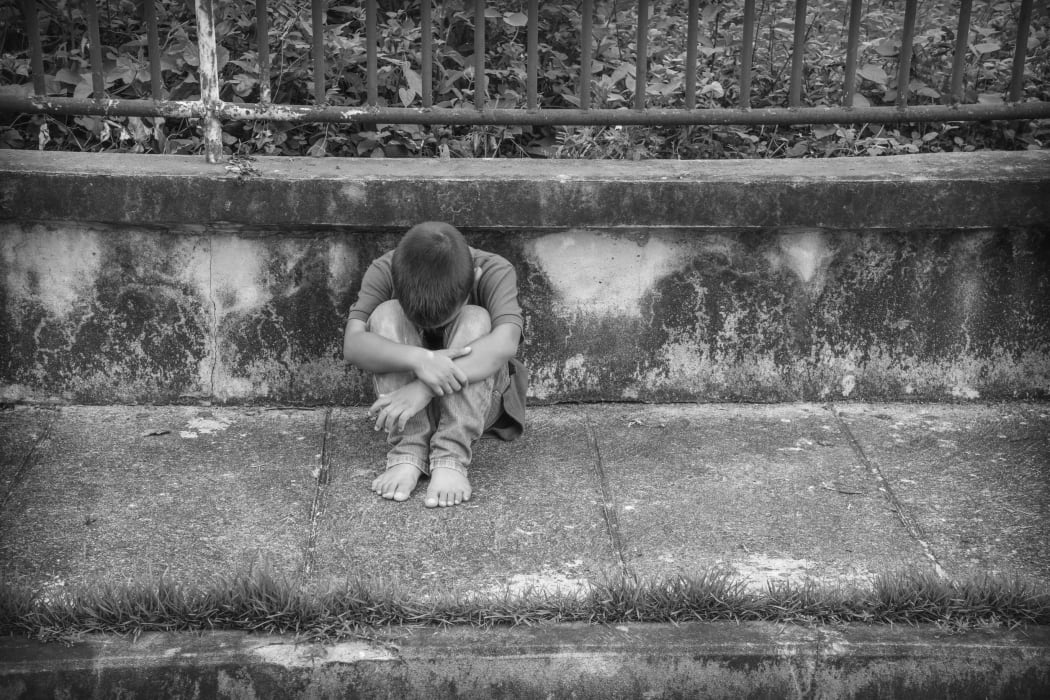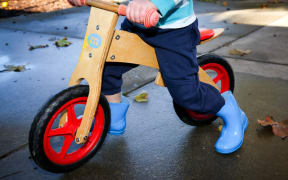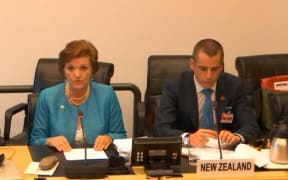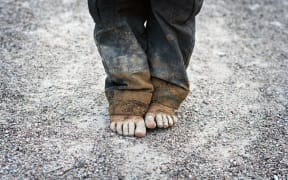The Children's Commissioner has warned action needs to be taken, or New Zealand risks relegating a third generation of children to a life of poverty.

More than 8 percent of children live in severe poverty, according to the latest Child Poverty Monitor Report. Photo: 123RF
This year's Child Poverty Monitor Report, released today, shows no real improvement in child poverty rates, with 295,000 children - 28 percent - living in low income homes.
More than 8 percent of children were in severe poverty. That meant 90,000 children experienced both material hardship and lived in a low-income home.
While child poverty was reasonably stable for several years, it was significantly worse than the 1980s.
In 1982, the percentage of children in families experiencing income poverty was 14 percent, compared to 28 percent now.
Children's Commissioner Judge Andrew Becroft doubted anyone wanted the situation to continue.
Despite the growth of the economy, the position of children in poverty had not improved, he said.
"I think we have a real social responsibility, all New Zealanders, to ensure that the benefits of economic growth are made accessible to all in the community, especially children."
Last year, New Zealand signed up to the United Nations' sustainable development goals, which included a target to halve poverty by 2030.
To achieve that, would take a government-led plan to reduce child poverty, Judge Becroft said.
"This is a challenge for the whole country... it should involve business, community and non-government groups," he said.
"This is not a recent problem - it goes back several decades and rates of child poverty have not improved.
"I don't want to criticise or lay blame. My simple plea today is for the government urgently to provide a plan to tackle child poverty in New Zealand."
University of Otago's New Zealand Child and Youth Epidemiology Service director Jean Simpson said the impact of poverty was seen in hospital wards and classrooms across the country.
"Living in poverty has serious implications for children's health, wellbeing and life outcomes," she said.
"We know, for example, that children living in the lowest income households are far more likely to be living in households that are crowded.
"They are much more likely to be in homes that have major damp and mould problems and where the family is struggling to pay to heat the home. That can lead to diseases that we simply shouldn't be seeing still happening in 21st century New Zealand - like chronic lung disease and rheumatic fever."
But the government said the child poverty figures published today were a restatement of those it released in September and did not allow for action it had taken.
Social Development Minister Anne Tolley said the figures were released by her Ministry from data collected in 2014.
She said they did not include the $25-dollar a week rise to benefits in April and free doctor's visits for under 13-year-olds.
"The results of the benefit increases we won't see until 2018's release of the statistics. So we've got to be very careful that you don't have knee-jerk reactions.
"It's got to be good information based on good data analysis."
Mrs Tolley said trends showed the gap between the rich and poor was not widening.
Labour children's spokesperson Jacinda Ardern said the child poverty monitor was more extensive than the figures released by Mrs Tolley's Ministry.
"We do have a bit more information around health outcomes.
"It's really a collaborative piece that brings together all of the information we have about the effects of poverty on children. It is a useful tool. It tells us what we need to do, as politicians, to fix the problem."
Ms Ardern said the government needed to start setting targets to reduce child poverty.
Prime Minister Bill English said the government was working hard to break the cycle of poverty.
He was not ruling out a further increase to incomes and the benefit to do that, if necessary.
"You can always raise benefits, we've done it once back in April this year.
"Over the next few months those are the kind of choices that we'll be making," Mr English said.
The government was also actively looking at what it could do to alleviate the increasing cost of housing for low to middle income households.
Mr English said setting targets to reduce poverty won't solve the problem.






